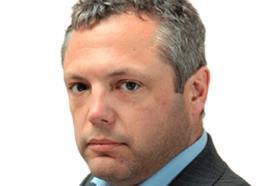As former attorney general Dominic Grieve recently lamented, there are few votes in a properly functioning justice system. How the law and access to justice operate is not something most people want to think about until they are obliged to engage with them – whether they are buying a house, getting a divorce or standing trial for murder. That allows government to starve the sector of funds without paying a price at the polls.

So how do we change this? Interviewed for the Gazette, new Law Society president I. Stephanie Boyce notes the importance of lobbying for piecemeal gains but advocates a longer-term solution. We need to start teaching schoolchildren about the law and access to justice, she says. That would ultimately transform public attitudes and translate into votes, forcing politicians to listen. It could also greatly diversify the legal profession’s intake and help transform attitudes from within.
Public education is a seductive panacea. And Boyce is right – it needs to begin early. What we do and don’t teach children is positively eccentric, when you think about it. When I left school, I could have told you a great deal about Otto von Bismarck and Shakespeare’s tragedies. But I couldn’t have said much at all about the workings of the British state; our constitution (such as it is); or the significance of an independent judiciary. Perhaps such weighty matters were (and are) considered unsuitable for impressionable young minds.
From what I can glean, these days the legal system is touched upon in pre-GCSE classes grouped under the pedagogical banner of ‘citizenship’. For most under-18s, that seems to be about it.
Without wishing to be dubbed a conspiracy theorist, I sometimes think this suits government. Low information fosters passivity and implied consent. Especially when, in truth, we are not ‘citizens’ at all but ‘subjects’. This is a not a pedantic distinction. It is an attitude of mind that recently emboldened a senior police officer to airily dismiss public complaints about the policing of protests because he was a servant of the Crown and not the people.
Perhaps the Queen should pay his wages.































No comments yet